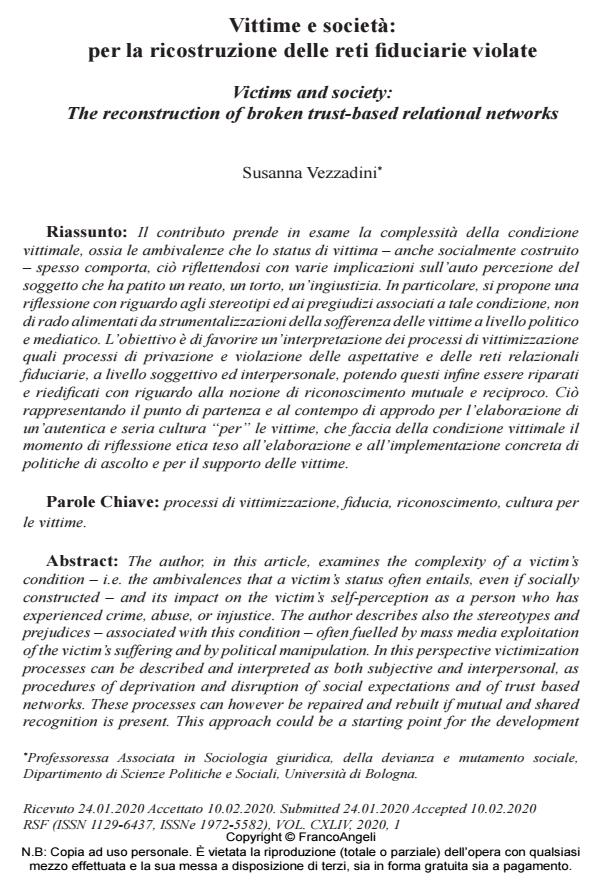Victims and society: The reconstruction of broken trust-based relational networks
Journal title RIVISTA SPERIMENTALE DI FRENIATRIA
Author/s Susanna Vezzadini
Publishing Year 2020 Issue 2020/1
Language Italian Pages 13 P. 11-23 File size 182 KB
DOI 10.3280/RSF2020-001002
DOI is like a bar code for intellectual property: to have more infomation
click here
Below, you can see the article first page
If you want to buy this article in PDF format, you can do it, following the instructions to buy download credits

FrancoAngeli is member of Publishers International Linking Association, Inc (PILA), a not-for-profit association which run the CrossRef service enabling links to and from online scholarly content.
The author, in this article, examines the complexity of a victim’s condition - i.e. the ambivalences that a victim’s status often entails, even if socially constructed - and its impact on the victim’s self-perception as a person who has experienced crime, abuse, or injustice. The author describes also the stereotypes and prejudices - associated with this condition - often fuelled by mass media exploitation of the victim’s suffering and by political manipulation. In this perspective victimization processes can be described and interpreted as both subjective and interpersonal, as procedures of deprivation and disruption of social expectations and of trust based networks. These processes can however be repaired and rebuilt if mutual and shared recognition is present. This approach could be a starting point for the development of an authentic and critical culture "for" the victims. An ethical approach, founded on the listening of the victims, in which the victims’ conditions are studied and then followed by the realization of concrete support policies.
Keywords: Victimisation processes, trust, acknowledgement, culture for the victims.
- Genere, diritti e vulnerabilità Federica Valerio, (ISBN:978-88-6969-951-1)
Susanna Vezzadini, Vittime e società: per la ricostruzione delle reti fiduciarie violate in "RIVISTA SPERIMENTALE DI FRENIATRIA" 1/2020, pp 11-23, DOI: 10.3280/RSF2020-001002